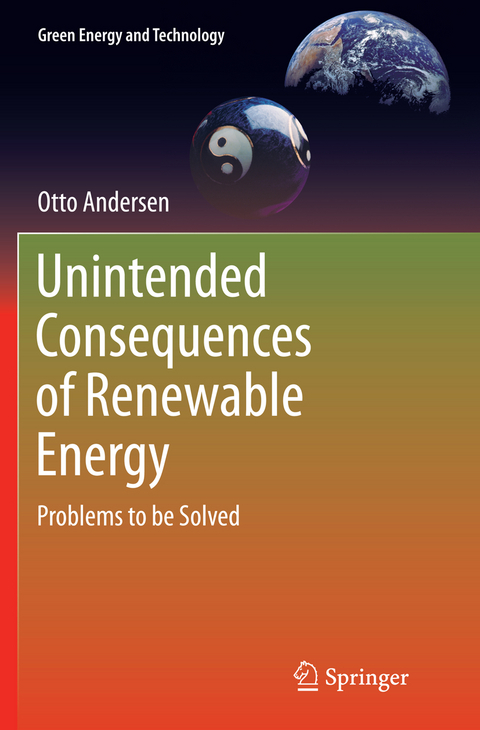
Unintended Consequences of Renewable Energy
Springer London Ltd (Verlag)
978-1-4471-7004-4 (ISBN)
Energy technologies in the future will need to be based on renewable sources of energy and will, ultimately, need to be sustainable. This book provides insight into unintended, negative impacts and how they can be avoided. In order to steer away from the pitfalls and unintended effects, it is essential that the necessary knowledge is available to the developers and decision makers engaged in renewable energy. The value of this book lies in its presentation of the unintended health and environmental impacts from renewable energies.
The book presents results from cross-disciplinary research on the implementation of alternative fuels in the transport sector, namely hydrogen, electricity and biodiesel. This is followed by an assessment of environmental impacts from the production of solar cells. Critical reviews on the use of nanotechnology and nanomaterials in the energy technologies is then provided, with the formation of nanoparticles during combustion of bio-blended diesel and their toxic effects, discussed in detail.
Otto Andersen has an unusually broad scientific background covering a wide spectra of science disciplines. He has applied both natural science and social science methods to address societal problems. Originally trained as a biochemist with practical application of analytical biological separation in combination with immunological methods at the Norwegian National Institute of Public Health. Dr. Andersen obtained an understanding for cross-disciplinary problem-based science. The pharmaceutical R&D experience at 3M Company, as well as the regulator y and quality assurance work at Dyno Particles AS, gave him through insight into the importance of addressing environmental challenges for industrial companies, particularly those with transport services as key business activity. The research at Vestlandsforsking (Western Norway Research Institute) has spanned 19 years of work with energy issues, with special focus on the environmental impacts. The doctoral work on the relation between transport and industrial ecology provided new insight into the environmental aspects of mobile energy, including renewable options. Recently, he is also engaged in stationary renewable energy production, including photovoltaic solar energy technologies, and the impact assessment of their manufacturing.
Introduction: What are Unintended Consequences of Renewable Energy and How Can They be Predicted?.- Rebound Effects.- Consequential Life Cycle Environmental Impact Assessment.- Implementation of Hydrogen Gas as a Transport Fuel.- Biodiesel and Its Blending into Fossil Diesel.- Towards the use of Electric Cars.- Solar Cell Production.- Final Discussion and Conclusions.
| Erscheinungsdatum | 22.11.2016 |
|---|---|
| Reihe/Serie | Green Energy and Technology |
| Zusatzinfo | 16 Illustrations, black and white; XIII, 94 p. 16 illus. |
| Verlagsort | England |
| Sprache | englisch |
| Maße | 155 x 235 mm |
| Themenwelt | Naturwissenschaften ► Biologie ► Ökologie / Naturschutz |
| Sozialwissenschaften ► Politik / Verwaltung ► Politische Theorie | |
| Technik ► Elektrotechnik / Energietechnik | |
| ISBN-10 | 1-4471-7004-0 / 1447170040 |
| ISBN-13 | 978-1-4471-7004-4 / 9781447170044 |
| Zustand | Neuware |
| Haben Sie eine Frage zum Produkt? |
aus dem Bereich


